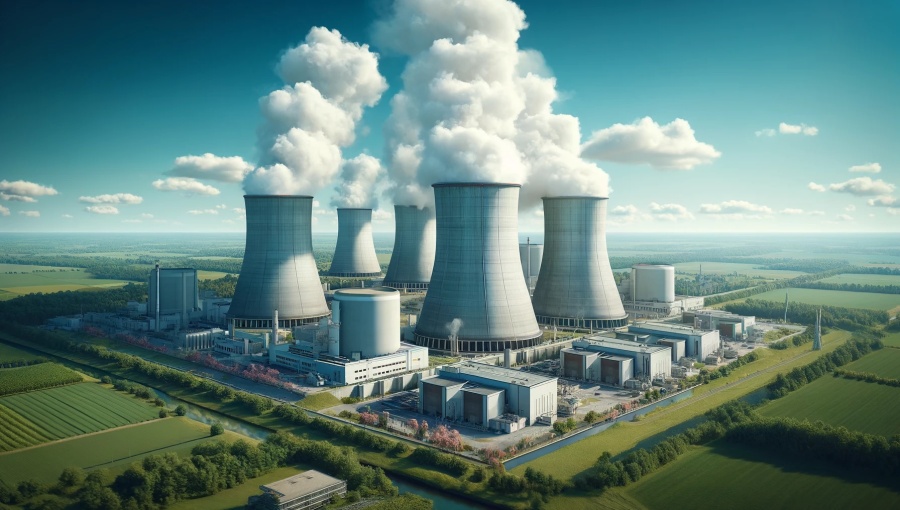Spain's grid operator rejects blame for Iberian blackout, France shuts down NPP as Mediterranean waters too hot to cool reactors

Spain’s electricity grid operator Redeia has defended the company’s handling of Iberian blackout in April caused by extreme weather conditions, but now France’s biggest utility company was forced to shut down reactors on June 30 as the water in the Mediterranean has become too hot to cool its nuclear reactors.
A heatwave is sweeping Europe, taking temperatures to all-time record highs. El Granado in Spain reported a spike in temperatures to 46C on June 30, the highest level ever recorded in the country. And the extreme temperatures are starting to cause the grids to collapse, due to the over-reliance on renewables.
Spain was struck by a sudden nationwide blackout in April, which left large parts of Spain and Portugal without power, after the swings in the frequency caused a cascade of shutdowns at generating facilities. Spain has made strides in switching to renewables, which now account for more than half of its generating capacity, up by 37% from 2018. Wind is the largest contributor among renewables, making up around 23-25% of total generation. Solar PV has also grown rapidly, now accounting for over 15%. Spain’s national energy and climate plan targets 74% renewable electricity generation by 2030
However, it has concurrently wound down its base load generating capacity, and no gas fired power stations were online on the day of the collapse. As power generated from renewables is more variable than gas or nuclear power stations, the swings in the frequency are more difficult to manage. Chronic underinvestment into grids is now causing problems across the continent.
France NPP shut down
Now the extreme weather problems have shifted to France. As reported by bne IntelliNews, the Mediterranean is now the temperature of bath water – a balmy 25C, or 5-6C higher than usual, more than eight standard deviations above average. In statistics anything more than two standard deviations from the average is considered as an extreme aberration. European meteorological services have already issued an “amber alert” as temperatures continue to climb.
The water in the Mediterranean and its tributary rivers is now so hot they have become too hot to effectively cool France’s fleet of nuclear power plants (NPPs).
As of June 29, Électricité de France (EDF) had temporarily shut down or reduced output at several of its nuclear reactors due to elevated river water temperatures, which have limited the utility's ability to safely use river water for reactor cooling.
The affected plants at Tricastin and Golfech rely on the Rhône and Garonne rivers for cooling. EDF is required by French regulations to limit operations or shut down reactors when water temperatures rise too high, to avoid discharging heated water back into already-warm rivers, which could harm aquatic ecosystems.
These so-called “environmental curtailments” have been triggered before during summer heatwaves, but they have become more frequent and severe in the now regular disaster seasons. This year’s early summer heat is already at record levels across southern France and pushed river temperatures above the regulatory limits.
France is highly dependent on nuclear power – accounting for around 65–70% of electricity generation – making such summer disruptions a much bigger problem in heatwaves as the demand for power surges thanks to air conditioner use.
As of June 30, EDF has not issued a long-term forecast of output losses related to these environmental constraints, but in previous years, similar events have led to reductions of 1–2 GW of nuclear capacity during peak temperature days.

More investment needed
Global energy investment is projected to reach a record $3.3 trillion in 2025, despite continued economic uncertainty, according to a recent report from the International Energy Agency (IEA). However, the report identified underinvestment into the grids as a major problem.
The Paris-based organisation’s tenth World Energy Investment 2025 report highlighted a growing divergence between clean energy expansion and the lagging support for energy systems critical to grid stability and supply security. Governments have been focused on building as much new green generating capacity as fast as they can, but they have ignored the need for supporting investment into the grid systems to cope with the inherently more unstable power supplies. Now a heatwave is sweeping Europe – currently the fastest warming region in the world – these shortfalls have been thrown into sharp relief.
After the embarrassment of the Iberian blackout in April, the Spanish government has pledged record levels of investment in the power network, but a row has broken out over who is to blame for the blackout.
Chair of the board of directors at Redeia Beatriz Corredor rejected accusations that the company was at fault for the April 28 outage, Reuters reports. She instead attributed the disruption to generating companies, stating that Redeia had acted in line with all required procedures.
Alongside chief executive Roberto García Merino, Corredor defended the grid operator’s planning and operational management, including the handling of Spain’s interconnector with France, which has also come under scrutiny from energy companies and government officials, Reuters reports. A government report into the blackout cited Redeia’s failure to calculate an appropriate energy mix as a contributing factor to the grid’s inability to handle a voltage surge.
Calls from energy firms and policymakers for an upgrade to Spain’s grid, Corredor said the company’s forthcoming strategic plan would involve “the execution of an unprecedented volume of investments”. She did not provide further details. Redeia’s investments have been increasing in recent years and are expected to exceed €1.4bn ($1.6bn) in 2025, according to Merino.


Follow us online